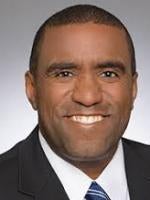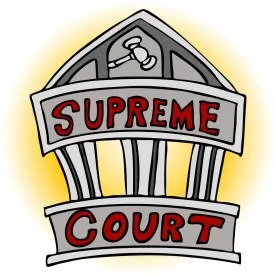If one appellant has its way, the False Claims Act (FCA) would be gutted by way of its qui tam provisions struck down as unconstitutional by the United States Supreme Court. That is the position taken by Intermountain Health Care, Inc. (Intermountain), which found itself on the wrong end of an FCA suit brought by a physician who alleges that one of his colleagues submitted improper requests for reimbursement for unnecessary medical procedures.
The teeth behind the False Claims Act are its qui tam provisions, which enable private individuals (known as “relators”) to pursue FCA actions on a “qui tam” basis. “Qui tam” is shorthand for the Latin phrase, “he who sues on behalf of the King as well as for himself.” These provisions provide a financial incentive to report noncompliance, as successful qui tamplaintiffs are statutorily entitled to share up to 30 percent of the government’s recovery in an FCA case.
Procedural Summary
The underlying details in the matter — Intermountain Health Care, Inc., et al. v. U.S. ex rel. Polukoff et al., Supreme Court petition no. 18-911 — allege that a doctor, Sherman Sorensen, conspired with two hospitals (including Intermountain) to perform unnecessary heart surgeries and receive federal reimbursements by fraudulently certifying that the surgeries were medically necessary. After the district court dismissed the complaint for failure to meet pleading requirements, the relator appealed to the Tenth Circuit. There, Intermountain and its co-defendants raised for the first time that the claims against them could not proceed on the grounds that the qui tam provisions of the FCA violate Article II of the Constitution, among other arguments. The Tenth Circuit did not reach the merits of this argument, finding that defendants had forfeited those challenges by failing to raise them at the district court level. The Tenth Circuit reversed the district court’s order and remanded, holding that the relator’s amended complaint did satisfy pleading requirements.
Intermountain, in response, petitioned the Supreme Court for a writ of certiorari, raising two questions: (1) whether the False Claims Act’s qui tam provisions violate the Appointments Clause of Article II of the Constitution, and (2) whether a court may create an exception to Federal Rule of Civil Procedure 9(b)’s particularity requirement when the plaintiff claims that only the defendant possesses the information needed to satisfy that requirement. This post addresses the constitutional arguments only, i.e., the first question.
Merits of the Arguments Raised: Constitutional Challenge
The Appointments Clause provides that the President “shall nominate, and by and with the advice and consent of the Senate, shall appoint…officers of the United States… [and] that Congress may by Law vest the appointment of…inferior officers…in the President alone, in the Courts of Law, or in the Heads of Departments.” U.S. Const. art. II, § 2, cl. 2. Intermountain asserts that the FCA qui tam provisions violate this Clause because (1) relators are officers (not appointed pursuant to the appointments clause and thus in violation of it), or, alternatively because (2) the FCA impermissibly vests a core function of officers in non-officer relators. According to Intermountain, qui tam relators constitute “officers” or “inferior officers” of the United States when they prosecute FCA actions on behalf of the United States, which is unconstitutional without proper appointment.
In support, Intermountain points to qui tam relators’ prosecutorial duties, that they receive compensation from the government, and that they exercise significant authority under federal law. Accordingly, Intermountain claims, relators are in fact “officers” or “inferior officers.” Intermountain posits alternatively that, even if relators are not officers, the FCA still violates the Appointments Clause because it vests the functions of core officers in un-appointed relators.
The relator, Gerald Polukoff, and the Government (which intervened solely on this constitutional issue) opposed, arguing: (1) there is no circuit split on the constitutional argument raised, (2) every circuit that has considered the argument has rejected it, (3) this case is a poor vehicle to consider the issue raised because Intermountain failed to raise it at the district court level, and the Tenth Circuit did not consider it on the merits, and (4) qui tam relators are merely private plaintiffs pursuing a cause of action under federal law and do not constitute “officers.”
The Government’s Opposition details this last point, offering that Intermountain’s position is inconsistent with the Supreme Court’s analysis in Vermont Agency of Nat. Res. v. U.S. ex rel. Stevens, 529 U.S. 765, 772, 120 S. Ct. 1858, 1862, 146 L. Ed. 2d 836 (2000) (discussing relators’ actions as a “private stake” in a “private suit”). The Government also asserts that qui tam relators neither evince the “practical indicia” of federal officers (i.e., “the ideas of tenure, duration, emolument, and duties”) nor are they akin to “independent counsel,” which the Supreme Court considered to be “inferior officers” in Morrison v. Olson, 487 U.S. 654 (1988). The Government posited that a relator “does not occupy a continuing position established by law.” Lastly, the Government responds to Intermountain’s claim that the FCA impermissibly vests “a core officer function” to un-appointed relators on the grounds that relators bring only private suits and do not administer or enforce public law.
On balance, Intermountain faces a steep climb for the Supreme Court to accept review of its constitutional argument. But, if the Supreme Court accepts review, government attorneys, the defense bar, in-house counsel, and relators’ counsel alike have a lot at stake, and all will be watching closely.





 />i
/>i
